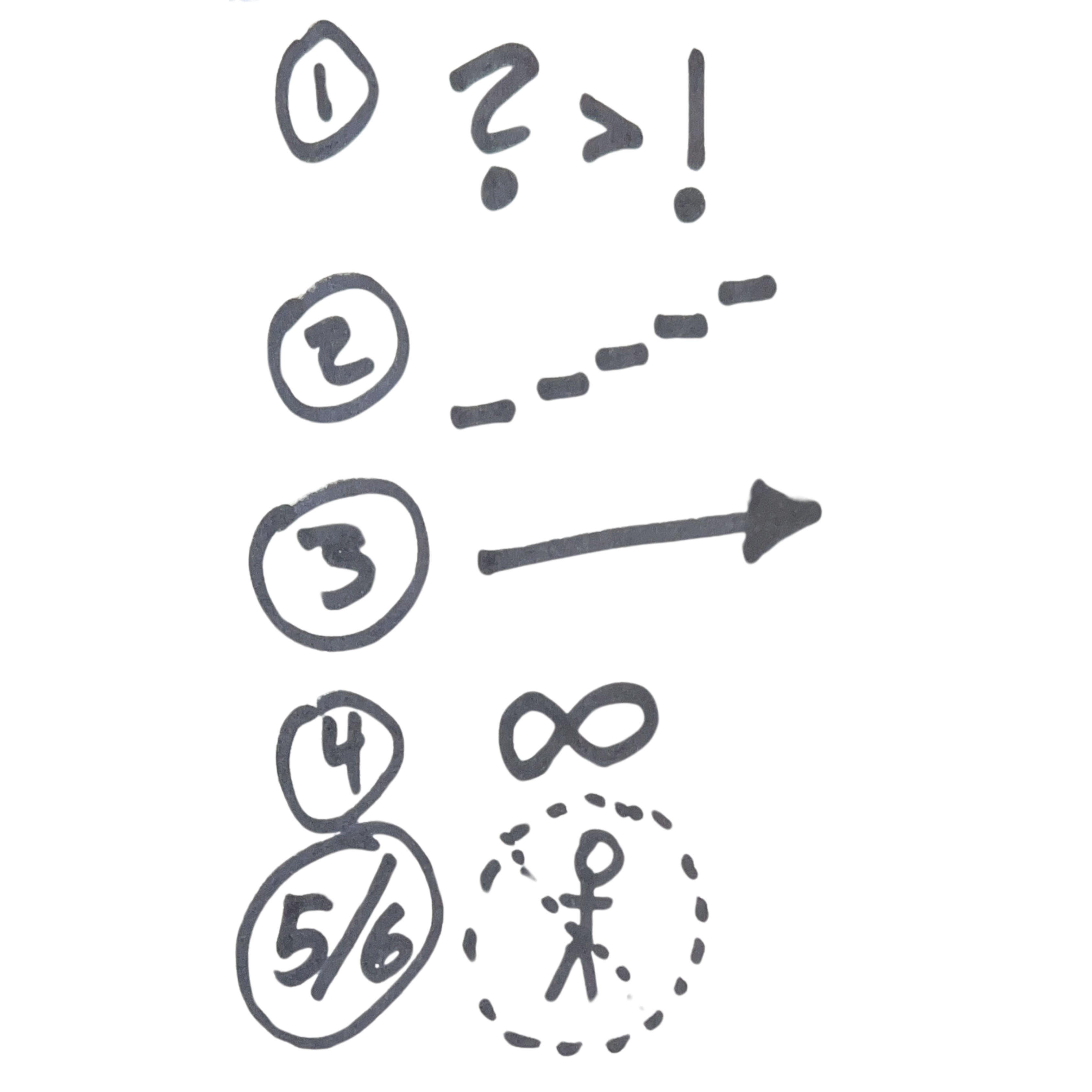A Reading from the opening chapters of
Rabbi Brian’s Highly Unorthodox Gospel
1:1 Radical Openness To Love
Imagine you and I are in a fantastic, cosmic music academy—a beautiful, large room filled with the shiniest, most beautiful French horns.
And imagine that in this magic world, I do my best to encourage growth, minimize shame, and help learners love learning. (That’s what I do.)
I explain to you (and others there) how to hold the French horn, the most-difficult-to-master brass instrument:
- the right hand goes in the bell, supporting much of the weight of the 12+ feet of brass tubing
- the left pinky steadies the rest of the weight on the small crook
- each of the first three fingers of the left hand goes on a separate valve
- the left thumb rests on the large valve on the bottom
What would you imagine you would want to do next?
Blow! Make a sound!
Of course.
Of course, you want to give it a try.
Enthusiastically, I tell you: Go for it!
And you do. Everyone tries.
It sounds horrible.
I imagine we would all laugh, hearing that our collective competence is far from the magical marching band of The Music Man.
Do you imagine I would shame you (or anyone) for not being able to play as well as I can, after my three and a half years of practice?
I wouldn’t, and I don’t.
I ask: With any task at which you are not at level five, near perfect, is shame warranted for your lack of perfection?
Beloved friend, in case you aren’t at level five, near perfect at lovingkindness (loving yourself and others), I’d like to help teach you.
That’s what this book is for.
1:2 <skipped in this preview>
1:3 What This Is.
Imagine me standing, with neither cart nor basket, in front of the dairy case in a supermarket.
I’m standing there holding a bag of frozen blueberries, a bag of bread flour, two bunches of fresh bananas, and two jars of peanut butter (there was a sale). I’m trying, awkwardly, to pick up a half gallon of almond milk without dropping anything.
Beloved reader, this too-much-in-the-hands situation is me, metaphorically, right now. I’m holding too many groceries.
- I want to tell you everything I know about love
- I want to empower you to be the foremost authority of your spiritualigious life. I want to tell you about the benefits of a healthy spiritualigious life and how to get one. And I want to discuss the downsides, as well.
- I want to tell you about rabbinical school and the type of rabbi I am now
- I want to help you unlearn common misunderstandings about God, the Bible, and more
- I want to apologize to you on behalf of organized religion
But I can’t do it all at once.
Just as I have to place the accumulated groceries onto the conveyor one at a time—so it is here. I can’t tell you everything at once.
This Book Is A Non-Fiction, Narrative-Driven, Inventive, Liberationalist, Spiritualigious Theology Book.
Non-fiction? I’m not making any of it up. Everything you will read about happened. The conversion at the video-game console, my running a service based on Jonathan Livingston Seagull, my therapist daring me to hand in a poorly written paper—it all happened.
Narrative driven? Many lessons will come from stories about my life.
Inventive? Um, the cover design or just the idea of a rabbi writing a Gospel?
Liberationalist? Of or related to one’s freedom.
Spiritualigious? This is a portmanteau of the words spiritual and religious.
Why not just use the word spiritual or religious?
Because people carry a lot of baggage about each of these words.
Some people hear spiritual and think woo-woo wackadoodle.
Some people hear religious and think only in terms of organized religion—a set of paths and goals.
Spiritualigious shouldn’t have that baggage. Spiritualigiousness is that part of life that is not physical, emotional, or intellectual.
Spiritualigiousness has six qualities.

- A spiritualigious life is marked by valuing questions more than answers
- A spiritualigious life is one in which values are hierarchical
- A spiritualigious life is marked by transformation
- A spiritualigious life is about connection, connectedness, oneness, unity
- A spiritualigious life is not about you
- A spiritualigious life is best understood via paradox, both/and thinking—e.g., while it’s not about you, it’s also not not about you—opposites are true
Please let’s take a moment.
Notice the lack of creed or mentions about God in our six qualities of a spiritualigious life.
I’ll repeat this a lot: one doesn’t need to believe in God to have a very healthy spiritualigious life.
Theology? Of or pertaining to the notion of the divine, Gee-oh-dee, the G-Word, (the) God (of one’s understanding), the universe, our highest ideals, etc.
While it’s possible for a person to be spiritualigious without the mention of a supreme being, this is a theology book. We are going to be talking about God. (Just not until the second to last chapter.)
Book? It’s a book.
I’m so glad. So excited. And thankful that you are reading this, Beloved.
♡ rB






